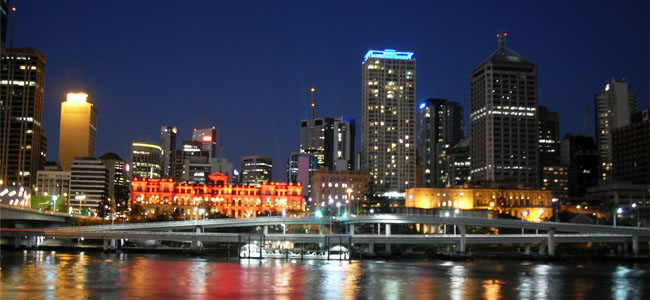The state of Queensland has been attempting to tackle the problem of alcohol-related violence for some time, and since the introduction of the Drink Safe Precincts Scheme (DSP) two years ago which saw higher policing of venues and clubs, the threat of intoxicated late-night violence has been greatly reduced.
A statistic seen nation-wide despite the rise in strong police presence across Australia as part of new government initiatives to stamp out alcohol-related violence, with live music venues across the country feeling squeeze by association.
However, according to News Ltd, the initiative is up for extensive review, and with its future in question, it looks as if music venues – such as those congregated in the popular Fortitude Valley district – may be paying a hefty price.
The $8.5 million DSP trial was set up in 2010 by the Bligh government after a parliamentary inquiry into alcohol-related violence, and recently saw an extension into February. Now another $500,000 has been injected into the program, extending it into September next year, however the injection of more cash into the DSP sees a cease in taxpayer funding of police patrols across venues, with the suggestion of charging licensees with a fee if they want their areas patrolled.“Extending the Drink Safe Precinct is better than not extending it [and] what we’re going to do now is talk directly to the non-government sector…” – Jarrod Bleijie, Attorney-General
“$500,000 is better than nothing,” Attorney-General Jarrod Bleijie told the Brisbane Times. “Extending the Drink Safe Precinct is better than not extending it [and] what we’re going to do now is talk directly to the non-government sector and the people who are operating those services in those areas,” said Mr Bleijie.
Only some of the areas covered by the DSP will receive an extra load of cash during the Christmas period including, the ChaplainWatch who will see an extra $25,000 to cover the popular music precinct Fortitude Valley, as well as ChillOut Zone in Surfers Paradise receiving an extra $48,000.
This leaves the other providers including the Queensland Police Service and Brisbane City council being asked to extend their services through to the new year without extra funding, forcing them to continue operating from the existing budget granted under the current extension.
Ian Leavers, president of the Queensland Police Union says of the funding snub, “When that funding stops, drug and alcohol fueled violence will once again take over the streets,” a position he’s been forewarning since last month when police called for extra government funding.
Although Bleijie believes that licensees, and not taxpayers, should bear the financial burdens associated with policing violent, intoxicated patrons, he indicated his intention to achieve a more collaborative approach. “I think if anything, the Drink Safe Precinct shows that the licensees want to be part of the solution to this,” said Bleijie.
Yet Carol Gordon, Treasurer of the Valley Chamber of Commerce speaking on behalf of the Valley Liquor Accord, thinks licensees and live music venues are already paying a hefty premium for late-night trading and shouldn’t be asked to cough up more dollars. “Throughout the state there’s been some $80 million collected by OLGR over the last four years,” says Gordon.
“I don’t think the government has put $80 million back in – we’re not asking them to do that – but…it’s about how it’s distributed.”
As the debate ramps up between venues and the Queensland government, general consumers may be seeing a rise in the price of pre-packaged alcohol with Belijie citing the problem of ‘preloading’ – punters getting liquored up at home or en route to venues – as a contributing factor to alcohol-related violence.
“When that funding stops (for the Drink Safe Precincts), drug and alcohol fueled violence will once again take over the streets.” – Ian Leavers, Queensland Police Union PresidentJust last week, the Queensland government heard calls for a levy to be introduced on packaged liquor in order to discourage punters from drinking excessively before heading out to see gigs at local venues or DJs at nightclubs.
According to The Queensland Times, the ‘Dealing with alcohol-related harm and night-time economy (DANTE)’ study undertaken by researchers at Deakin University and Hunter New England Population Health has found that restricting the trading hours of venues reduced alcohol-related crimes in Newcastle but that in order to tackle the issue, there must be more support from the government.
“The problem could be addressed by introducing a levy on packaged liquor to make it less attractive for people to pre-drink before going out clubbing” said Associate Professor Miller, who undertook the study.
Analysed in the study were a number of interventions including locking patrons out of venues after 1.30am, and clubs closing by 3.30am. Banning alcohol shots after 10pm and limiting the number of drinks served, echoing the hardline tactics of Sydney and Adelaide with the introduction of compulsory ID scanners for all late night traders, and the prohibition of certain liquor after midnight.
With the government scaling back their support for the Drink Safe Precinct initiative, it looks as if both tax payers and venues will be baring the brunt of an increased interest in dealing with alcohol-related violence.

































